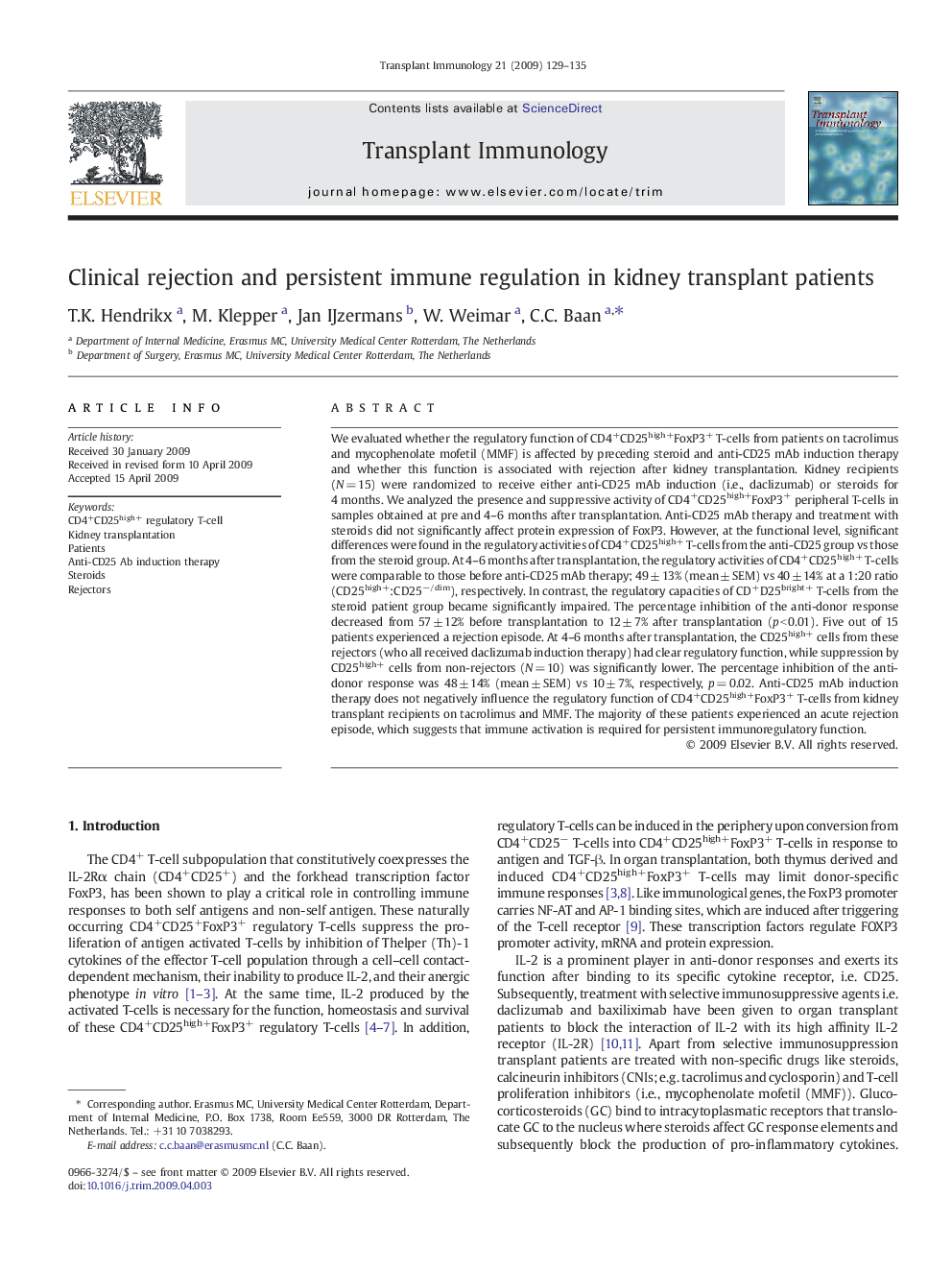| Article ID | Journal | Published Year | Pages | File Type |
|---|---|---|---|---|
| 3392285 | Transplant Immunology | 2009 | 7 Pages |
We evaluated whether the regulatory function of CD4+CD25high+FoxP3+ T-cells from patients on tacrolimus and mycophenolate mofetil (MMF) is affected by preceding steroid and anti-CD25 mAb induction therapy and whether this function is associated with rejection after kidney transplantation. Kidney recipients (N = 15) were randomized to receive either anti-CD25 mAb induction (i.e., daclizumab) or steroids for 4 months. We analyzed the presence and suppressive activity of CD4+CD25high+FoxP3+ peripheral T-cells in samples obtained at pre and 4–6 months after transplantation. Anti-CD25 mAb therapy and treatment with steroids did not significantly affect protein expression of FoxP3. However, at the functional level, significant differences were found in the regulatory activities of CD4+CD25high+ T-cells from the anti-CD25 group vs those from the steroid group. At 4–6 months after transplantation, the regulatory activities of CD4+CD25high+ T-cells were comparable to those before anti-CD25 mAb therapy; 49 ± 13% (mean ± SEM) vs 40 ± 14% at a 1:20 ratio (CD25high+:CD25−/dim), respectively. In contrast, the regulatory capacities of CD+D25bright+ T-cells from the steroid patient group became significantly impaired. The percentage inhibition of the anti-donor response decreased from 57 ± 12% before transplantation to 12 ± 7% after transplantation (p < 0.01). Five out of 15 patients experienced a rejection episode. At 4–6 months after transplantation, the CD25high+ cells from these rejectors (who all received daclizumab induction therapy) had clear regulatory function, while suppression by CD25high+ cells from non-rejectors (N = 10) was significantly lower. The percentage inhibition of the anti-donor response was 48 ± 14% (mean ± SEM) vs 10 ± 7%, respectively, p = 0.02. Anti-CD25 mAb induction therapy does not negatively influence the regulatory function of CD4+CD25high+FoxP3+ T-cells from kidney transplant recipients on tacrolimus and MMF. The majority of these patients experienced an acute rejection episode, which suggests that immune activation is required for persistent immunoregulatory function.
